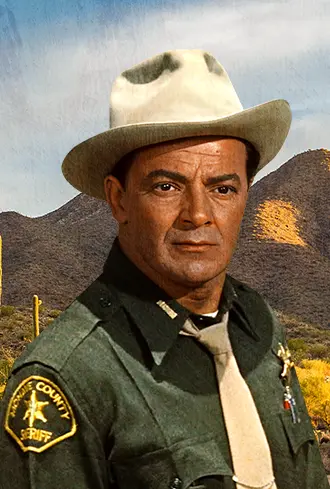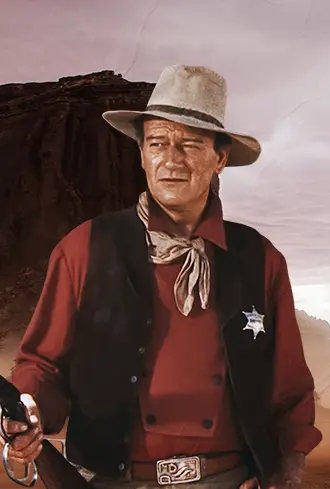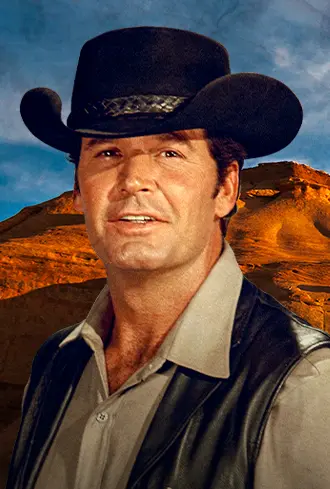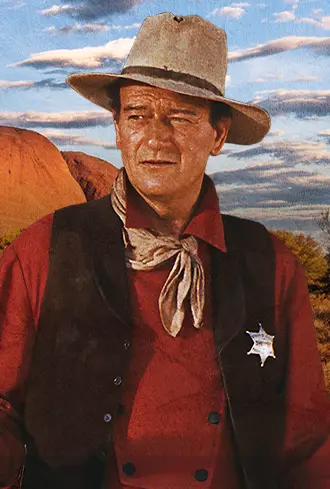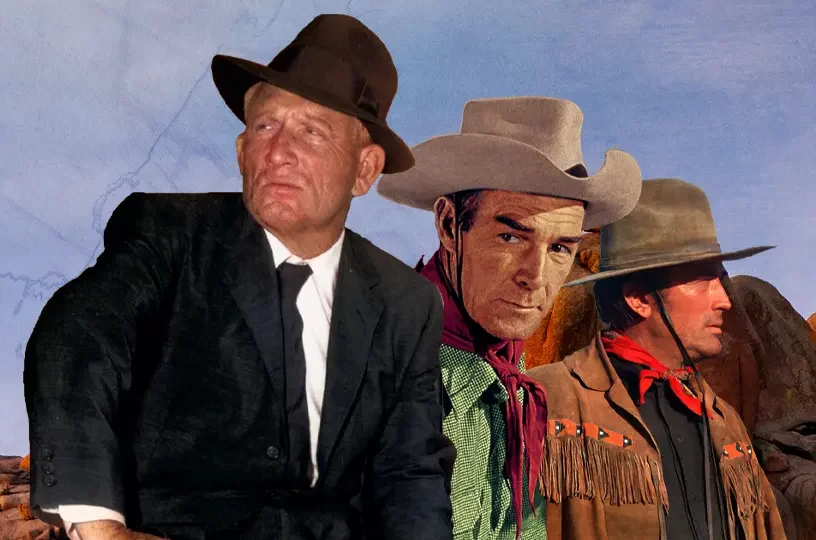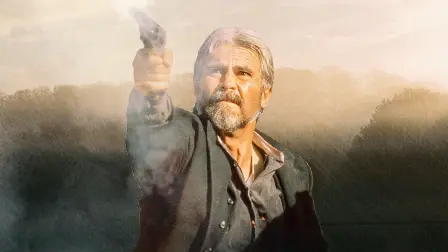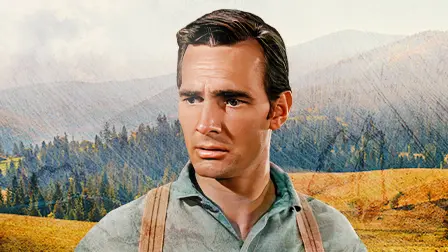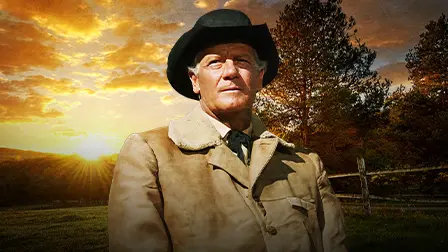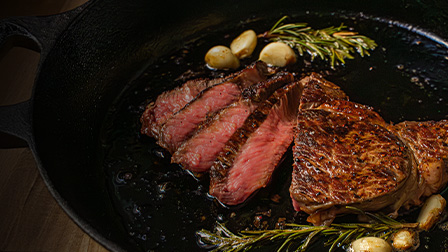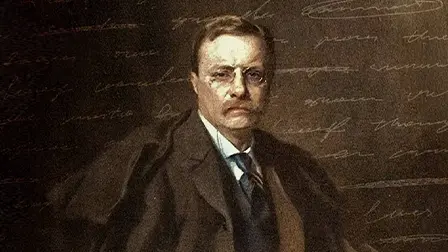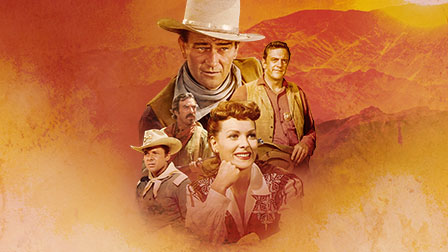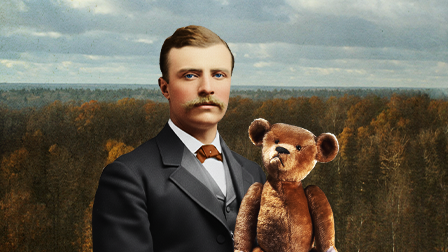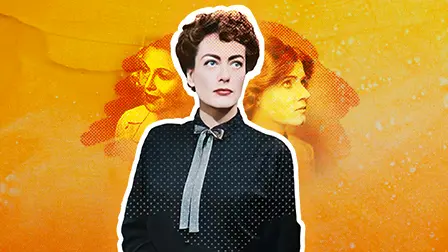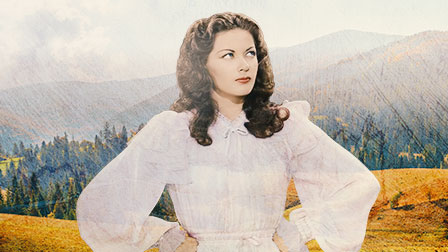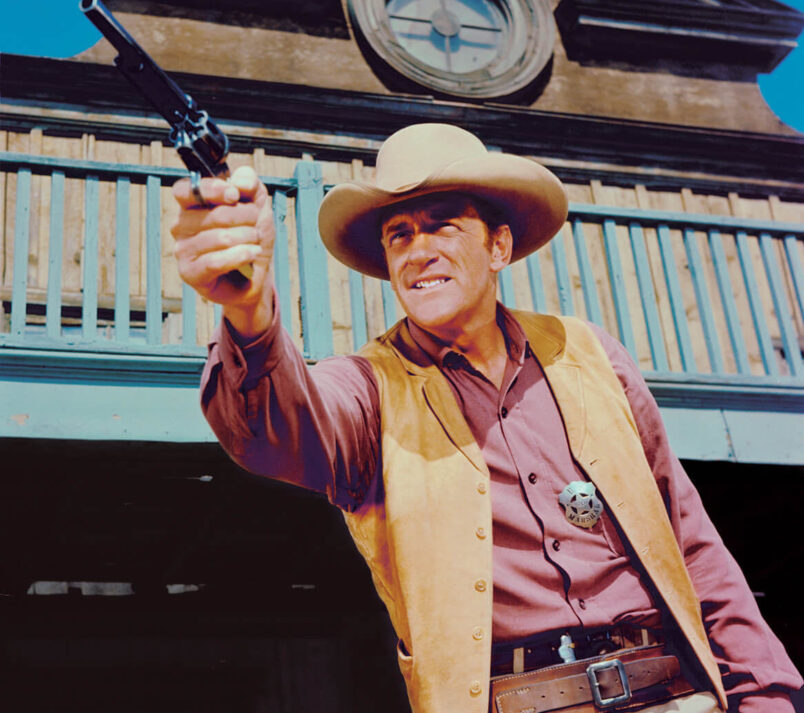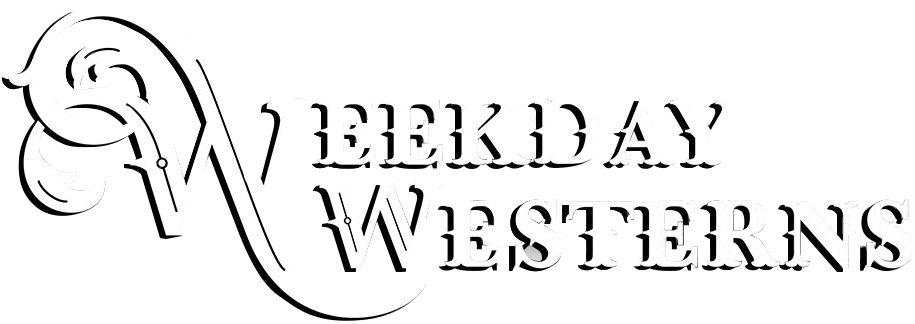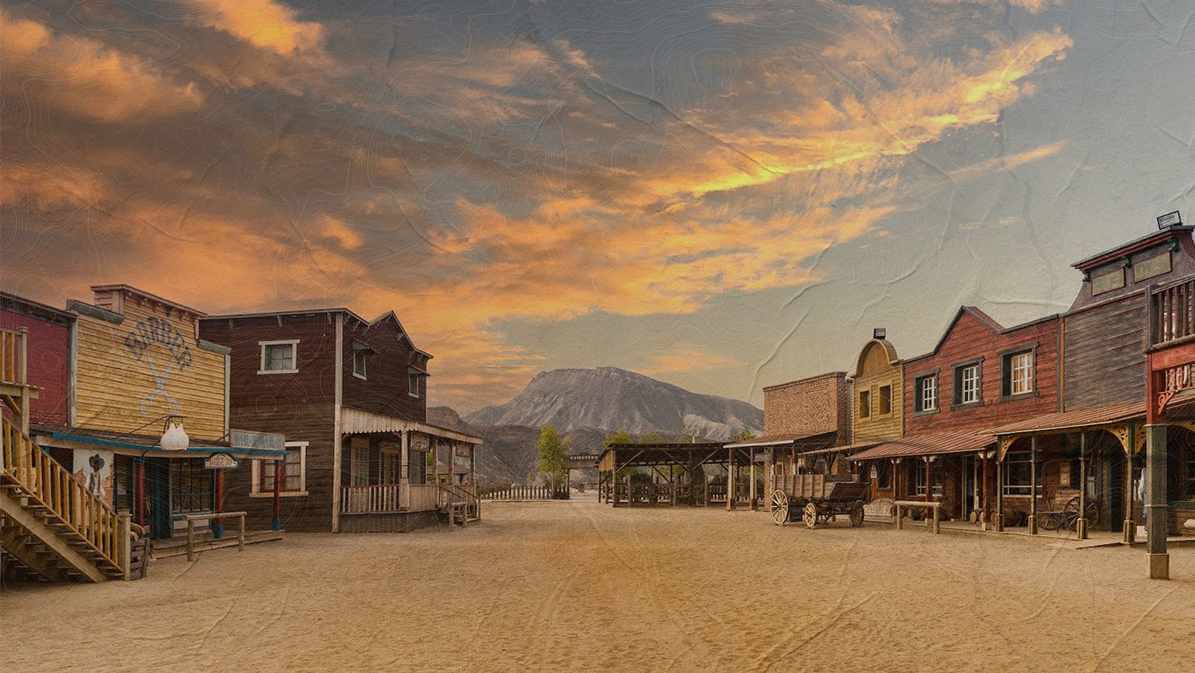Stars in My Crown—One of Joel McCrea’s Favorites
By Henry C. Parke
Today, the beautiful Thousand Oaks ranch of movie stars Joel McCrea and Frances Dee is The Joel and Frances McCrea Ranch Foundation, operated by their grandson, Wyatt McCrea—and yes, Wyatt is named for Wyatt Earp, or rather, his grandfather’s portrayal of the lawman in the 1955 Western, Wichita.
Wyatt worked on the family ranches, day-to-day, with his wrangler-turned-actor-turned-rancher grandfather, for his first nearly thirty years. Joel McCrea didn’t generally collect his own films, “but he had a 16-millimeter print of Stars in My Crown. When I was a kid,” Wyatt remembers with a chuckle, “Whenever it was raining outside, or just a summer evening, he would pull out the projector and we would watch Stars in My Crown. So, I probably saw it a dozen times as a kid. He's great in it, but I really do think it's the subject matter and the character that he plays that made it one of his favorites.”
 The winding road that led to the classic Western—a classic Southern is more accurate—began with the novel by Joe David Brown. He was a Birmingham-born newspaperman and a war hero: a member of the 460th Parachute Field Artillery Battalion, he parachuted into Southern France in August of 1944, received a battlefield promotion to second lieutenant, and was awarded the Purple Heart, while the French awarded him the Croix de Guerre with Palm.
The winding road that led to the classic Western—a classic Southern is more accurate—began with the novel by Joe David Brown. He was a Birmingham-born newspaperman and a war hero: a member of the 460th Parachute Field Artillery Battalion, he parachuted into Southern France in August of 1944, received a battlefield promotion to second lieutenant, and was awarded the Purple Heart, while the French awarded him the Croix de Guerre with Palm.
Brown’s novel, and the subsequent movie, are set in a small town in the post-Civil War south. Sentimental, but never maudlin, the story does not paint a purely idyllic picture of the time and place. There’s romance, fishing in the creek, kid hijinks, and a medicine show comes to town. But there’s also a deadly Typhoid epidemic, and cross-burning Klansmen. It’s much more about people than events, focusing particularly on the family of the Parson, whom Brown based on childhood memories of his Minister grandfather. McCrea plays Parson Josiah Dozier Gray, who’s married to Harriet (Ellen Drew), also the church organist, and they make a delightful couple, playfully sparring with each other. They’re raising her late sister’s son, John (Dean Stockwell), who narrates the tale, and as Joel says in the trailer, “Watching him is like growing up all over again.”
Then there’s likable eccentric Chloroform Wiggins (Arthur Hunnicutt), and kindly old once-enslaved farmer Uncle Famous (Juano Hernandez). But there’s also conniving hypocrite and mine operator Lon Backett (Ed Begley), and bullwhip-wielding bully Perry Lokey (Jack Lambert). At the story’s start, into a saloon walks Parson Gray, who cheerily announces, “Boys, I’m your new preacher, and I plan to give my first sermon here and now.” And when the barflies laugh, Parson draws his two six-guns and lays them on the bar, saying, “Thanks,” for their suddenly polite attention.
It's a Wonderful Life director Frank Capra was the first to see movie possibilities in the book, but as Joel told Wyatt when Capra passed, M.G.M. bought the rights—not for McCrea, “but with the idea of having Spencer Tracy do it. Tracy said no, he didn't want to play any more priests (or ministers). Joel and Spencer shared an agent, and Spencer’s the one that suggested they give it to my grandfather.”
 Five years before Gunsmoke, Stars in My Crown would feature the first screen teaming of Matt Dillon and Miss Kitty, or rather James Arness and Amanda Blake. As Beckey Burgoyne explains in her fine biography of Blake, Perfectly Amanda, the young actress was on the radio—playing Sam the receptionist opposite Dick Powell in Richard Diamond, Private Detective—when a high-school chum mentioned to her father that Amanda looked just like Greer Garson. The father was a producer at M.G.M., and he was so impressed with Amanda’s diction and beauty that, with studio boss Louis B. Mayer’s approval, Amanda was signed to a contract without a screen test! Stars in My Crown was her first assignment, and M.G.M. clearly had plans for her, as she is 7th billed, sharing the second title card with wonderful old pros Alan Hale Sr.; Louis Stone as old Dr. Harris, but famous as Judge Hardy from the Hardy Family film series; and James Mitchell, who plays her romantic interest, young Dr. Harris. She plays Faith Samuels, who grew up in the small town and is now the teacher in the one-room schoolhouse. She looks lovely, just as she would in Gunsmoke, but with one major difference: her expression. While Miss Kitty, a saloon operator after all, has a mature and knowing look, Faith’s face reveals the literally wide-eyed innocence of a doe. Burgoyne quotes Blake when she learned she had the role, “I was so excited they practically had to put me in a straitjacket.”
Five years before Gunsmoke, Stars in My Crown would feature the first screen teaming of Matt Dillon and Miss Kitty, or rather James Arness and Amanda Blake. As Beckey Burgoyne explains in her fine biography of Blake, Perfectly Amanda, the young actress was on the radio—playing Sam the receptionist opposite Dick Powell in Richard Diamond, Private Detective—when a high-school chum mentioned to her father that Amanda looked just like Greer Garson. The father was a producer at M.G.M., and he was so impressed with Amanda’s diction and beauty that, with studio boss Louis B. Mayer’s approval, Amanda was signed to a contract without a screen test! Stars in My Crown was her first assignment, and M.G.M. clearly had plans for her, as she is 7th billed, sharing the second title card with wonderful old pros Alan Hale Sr.; Louis Stone as old Dr. Harris, but famous as Judge Hardy from the Hardy Family film series; and James Mitchell, who plays her romantic interest, young Dr. Harris. She plays Faith Samuels, who grew up in the small town and is now the teacher in the one-room schoolhouse. She looks lovely, just as she would in Gunsmoke, but with one major difference: her expression. While Miss Kitty, a saloon operator after all, has a mature and knowing look, Faith’s face reveals the literally wide-eyed innocence of a doe. Burgoyne quotes Blake when she learned she had the role, “I was so excited they practically had to put me in a straitjacket.”
Arness didn’t have quite so much to get excited about. His option had been dropped by M.G.M., but they hired him for Stars anyway. It was his fifth movie, but he was unbilled, again cast as one of a group of brothers. Before, in The Farmer’s Daughter, he and Lex Barker had been two of Loretta Young’s siblings, and after Stars, in John Ford’s Wagon Master, he’d be one of the deadly Clegg brood. In Stars, he was Rolfe Isbell, one of four sons of Jed Isbell (Alan Hale). As the Parson says, “Jed, you’ve got enough tow-headed sons to start a Swedish Sunday school.” As the Parson’s adopted son John narrates, “A lot of folks thought Jed Isbell was a strange friend for a preacher to have,” because he is an atheist. But the men had fought together, “and the War had welded bonds, it seemed, that nothing could break.” Although Arness is seen, in overalls, throughout the film, his only line is, “Howdy, Parson,” when they shake hands. When McCrea and Arness would do another Western together three years later, The Lone Hand, Arness would not only receive billing, but his name would be on the poster. Both men were real ranchers as well as actors, and Arness would write in his autobiography, “Joel McCrea used to come over to our place and help out during roundups. He was a wonderful guy, a quiet, well-spoken gentleman.”
 The film’s director was French-born Jacques Tourneur, son of legendary director Maurice Tourneur. Jacques is so celebrated as a maker of classic horror films like The Cat People, and classic films noir like Out of the Past, that many don’t realize he was also an exceptionally good director of Westerns. He had the rare ability to humanize characters no matter how tough the story and action. It’s not known when they actually met, but McCrea and Tourneur were both extras in the 1927 Marion Davies silent comedy The Fair Co-Ed. They certainly knew each other in 1943, when Joel would visit the set and watch Jacques direct Mrs. McCrea, Frances Dee, in I Walked with a Zombie, (the plot of Jane Eyretransplanted to Haiti). Wyatt says, “[Joel] got along with him well; he liked him and thought that Tourneur was able to bring a lot out of him, out of an actor, without screaming and yelling. Later on, he requested to have Jacques direct when he did Stranger on Horseback and Wichita.”
The film’s director was French-born Jacques Tourneur, son of legendary director Maurice Tourneur. Jacques is so celebrated as a maker of classic horror films like The Cat People, and classic films noir like Out of the Past, that many don’t realize he was also an exceptionally good director of Westerns. He had the rare ability to humanize characters no matter how tough the story and action. It’s not known when they actually met, but McCrea and Tourneur were both extras in the 1927 Marion Davies silent comedy The Fair Co-Ed. They certainly knew each other in 1943, when Joel would visit the set and watch Jacques direct Mrs. McCrea, Frances Dee, in I Walked with a Zombie, (the plot of Jane Eyretransplanted to Haiti). Wyatt says, “[Joel] got along with him well; he liked him and thought that Tourneur was able to bring a lot out of him, out of an actor, without screaming and yelling. Later on, he requested to have Jacques direct when he did Stranger on Horseback and Wichita.”
Stars in My Crown was much beloved in 1950 and still has a strong following today. Ten years later, Harper Lee published her novel, To Kill a Mockingbird, and two years later, the film would be made. As was Joe David Brown’s book, Mockingbird is based on the author’s memories of growing up in a small town in the South, in 1936 rather than just after the Civil War, and told through the eyes of a child. And the parallels are striking: both examine the good and bad of the time and place, both involve racism, and both feature a lone man who bravely stands up for what is right—a Parson in Stars, a lawyer in Mockingbird. Joel McCrea would have made a fine Atticus Finch, and Gregory Peck would have made a fine Parson.
Brown would write a number of other successful novels, but his greatest success was his last one, published in 1971, nearly 25 years after Stars in My Crown. It was Addie Pray, a story about growing up in the South during the Depression, told from the point of view of a little girl traveling with her con-man father. The film version was called Paper Moon, and the actress, 10-year-old Tatum O’Neal, is still the youngest person to win a competitive Oscar.
About Henry C. Parke
Henry’s new book, The Greatest Westerns Ever Made, and the People Who Made Them, published by TwoDot, is now available. The Brooklyn-born, L.A.-based writer has contributed articles to the INSP blog since 2016, been Film Editor for True West since 2015, and has written Henry’s “Western Round-up,” the online report on Western film production, since 2010. His screenwriting credits include Speedtrap (1977) and Double Cross (1994). He’s the first writer welcomed into the Western Writers of America for his work in electronic media. He’s done audio commentary on nearly 30 Spaghetti and domestic Westerns.
Suggest a Correction
We strive for accuracy and fairness. But if you see something that doesn’t look right, click here to contact us!

